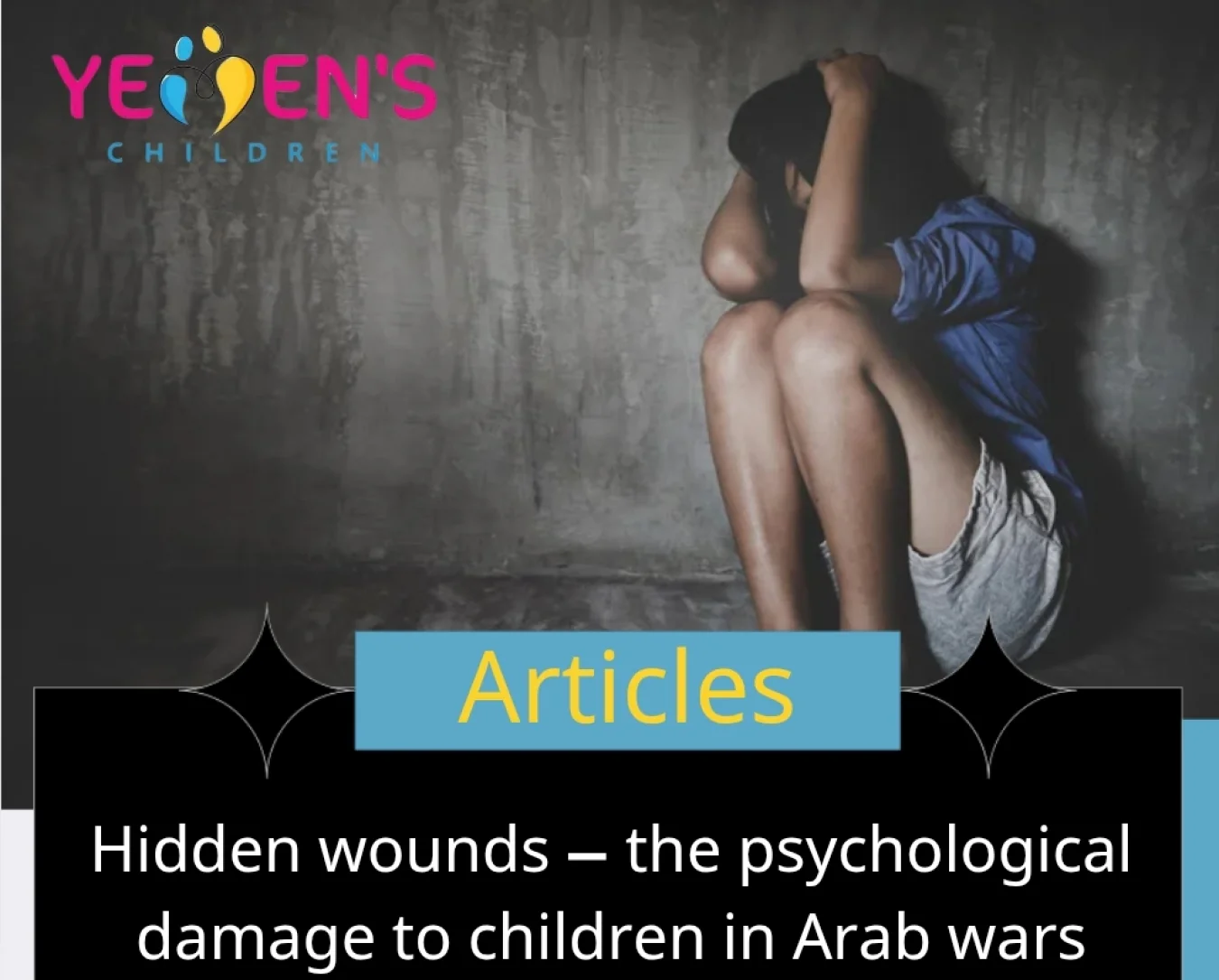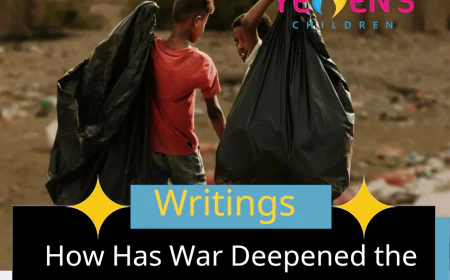Hidden wounds – the psychological damage to children in Arab wars

Articles: Sajaabed almajeed shabaneh
Wars in the Arab world, such as those in Palestine, Syria, Yemen, and Iraq, leave deep psychological scars on children, known as “hidden wounds” because they are invisible but devastating and long-lasting. This damage affects children's mental, emotional, and social health and includes:
• Psychological trauma: Children living through war are exposed to scenes of violence and destruction, such as bombings, loss of family members, or displacement.
• These experiences lead to disorders such as post-traumatic stress disorder (PTSD),
• chronic anxiety, depression, and constant fear
• of death or loss. For example, studies indicate that more than half a million Iraqi children need psychological treatment due to the trauma they experienced during the wars.
• Delayed development: Constant exposure to terror and deprivation leads to delayed mental, physical, and emotional development. Children may suffer from difficulty concentrating, delayed learning, or short attention spans due to psychological stress.
• Behavioral disorders: War breeds aggressive or introverted behaviors, such as nervousness, nightmares, bedwetting, or even suicidal tendencies in adolescents. Children may become more sensitive to loud noises or scenes that remind them of war.
• Loss of identity and hope: Children who lose their families or homes suffer from a severe identity crisis and feel despair and hopelessness about the future, which affects their ability to build a positive life.
• Difficulties with social integration: Displacement and loss make it difficult for children to build emotional relationships or integrate into society, and they may be subjected to discrimination or stigmatization because of their association with war.
Psychological support strategies
To mitigate these harms, the following is recommended:
• Family support: Parents should comfort their children, reassure them, and talk to them honestly in a manner appropriate for their age. Avoiding exposing them to scenes of war on television helps reduce trauma.
• Psychological rehabilitation programs: Psychotherapy sessions, such as cognitive behavioral therapy, help children process trauma by expressing it through writing, drawing, or talking to specialists.
• Providing a safe environment: Creating safe spaces, such as recreational or educational activities, helps distract them from the war and restore their sense of security.
• Social reintegration: Returning children to education and providing vocational training opportunities helps prevent their marginalization and strengthen their resilience.
Challenges in the Arab region
Arab countries suffer from a severe shortage of mental health professionals (e.g., 0.5 psychiatrists per 100,000 people in Libya and Yemen) compared to European countries, making the provision of mental health care a major challenge. This increases the risk of creating a “lost generation” that will carry the effects of trauma for the rest of their lives.
Conclusion
Children are the victims most affected by war, and the psychological wounds they suffer can last for decades, threatening the future of societies. Ending wars is the ideal solution, but until then, the focus must be on psychological and social support programs to minimize damage and build a more resilient generation.








